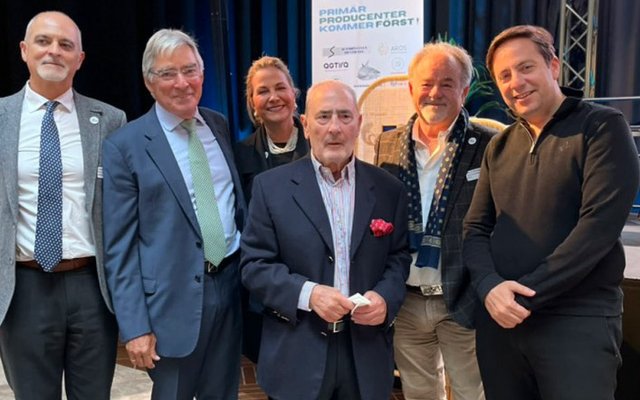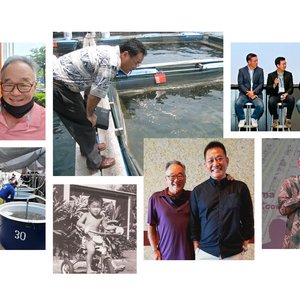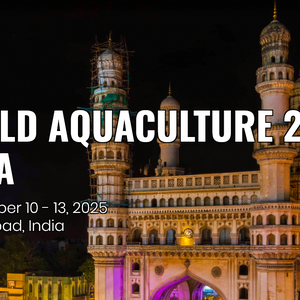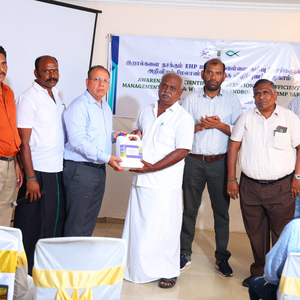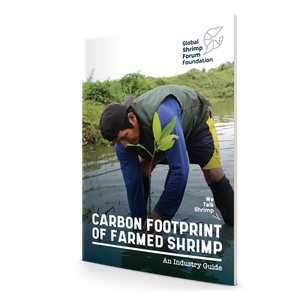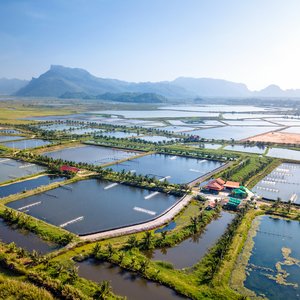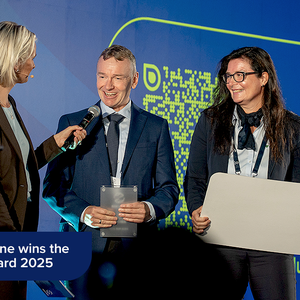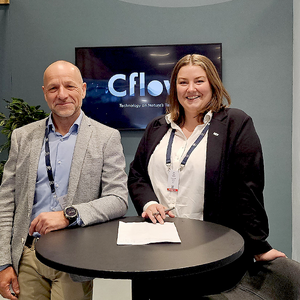The Federation of European Aquaculture Producers (FEAP) held its 57th Annual General Meeting (AGM) in Stockholm from May 22-23, gathering aquaculture professionals, national associations, policymakers, and experts from across Europe. The event focused on key issues affecting the sector while celebrating innovation, leadership, and sustainability in European fish farming.
FEAP’s actions were presented, including its active contribution to the development of the European Ocean Pact, a strategic initiative by the European Commission aimed at ensuring healthy, resilient, and productive oceans. FEAP advocates for a strong integration of sustainable fish farming within the Pact, emphasizing the sector’s vital role in providing nutritious food, supporting coastal economies, and reducing pressure on wild fish stocks. Through policy engagement and evidence-based contributions, FEAP promotes fish farming as a solution-based industry, calling for greater recognition of its environmental, social, and economic benefits and aligning its importance with food production and sovereignty objectives. By aligning aquaculture with the Pact’s goals, FEAP seeks to position the sector as a cornerstone of a responsible and forward-looking European ocean policy.
FEAP’s initial input on the Vision 2040 for Aquaculture and Fisheries was discussed. In this context, FEAP envisions a future where, by 2040, European fish farming is competitive, impactful, environmentally sustainable, and socially accepted, making it an attractive career path for future generations. The European Commission’s document should also recognize that, despite ambitious policy objectives, EU aquaculture production has remained largely stagnant since 2000.
Another priority discussed was the progress made on a European Cormorant Management Plan proposal. Facing the heavy losses and damages to fish farms and wild fish populations, and in the objective of finding sustainable ways to limit predation and secure food production and livelihoods, FEAP, EIFFAC (The FAO European Inland Fisheries and Aquaculture Advisory Commission) and the European Anglers Alliance (EAA) are leading on a series of efforts paving the way to a better management of this critical situation affecting fish farmers all over Europe. Highlight was made on the EIFAAC-FEAP-EAA are joint survey on damage and losses figures caused by cormorants and other predators to fish in aquaculture ponds and waterbodies used for inland recreational and commercial fisheries, which will lead to collective discussions in June on the occasion of several events such as the Poland25eu Conference on management advice to reduce cormorant predation impacts.
FEAP also shared its reinforced commitment in actions for climate change adaptation, announcing its involvement in two newly selected Horizon Europe-funded projects for climate change adaptation in aquaculture: OCCAM, a project that will pilot novel aquaculture practices and tools that help reduce environmental impact while ensuring economic viability, and ACTFAST, which will develop future strategies and technologies for climate transition. Both aim to enhance sustainability, reduce environmental impact, and prepare European fish farming for a changing climate through innovation and collaboration.
FEAP Excellence Award
A highlight of the two-day event was the presentation of the FEAP Award for Excellence in European Aquaculture to John Stephanis, a prominent figure in the sector whose career has significantly contributed to shaping modern aquaculture across Europe. Stephanis was honoured for his decades-long contributions, from founding leadership at Selonda Aquaculture S.A. to his transformative presidency of FEAP, where he opened the organization to Mediterranean aquaculture and championed cross-border cooperation. Stephanis also played a significant role in the founding of the European Aquaculture Technology and Innovation Platform (EATiP), contributing to the development of strategic research and innovation agendas aimed at advancing sustainable aquaculture practices in Europe.
The award not only celebrates an individual legacy but also reinforces the values of vision, commitment, and collaboration that are essential to the future of fish farming in Europe.
Swedish stakeholders in the spotlight
As the host nation, Sweden played a leading role in this year’s AGM. The program featured contributions from Ola Öberg, president of RecirkFisk PO, and representatives from the Swedish Board of Agriculture, including Björn Åsgård and Carl Dahlberg. The event provided a platform for Swedish stakeholders to share local innovations, especially in recirculated aquaculture systems (RAS) and youth participation in the sector.
Delegates were also treated to a tasting of Swedish aquaculture products and a social dinner at the iconic “House of People,” further showcasing Sweden’s commitment to sustainable and high-quality production.


